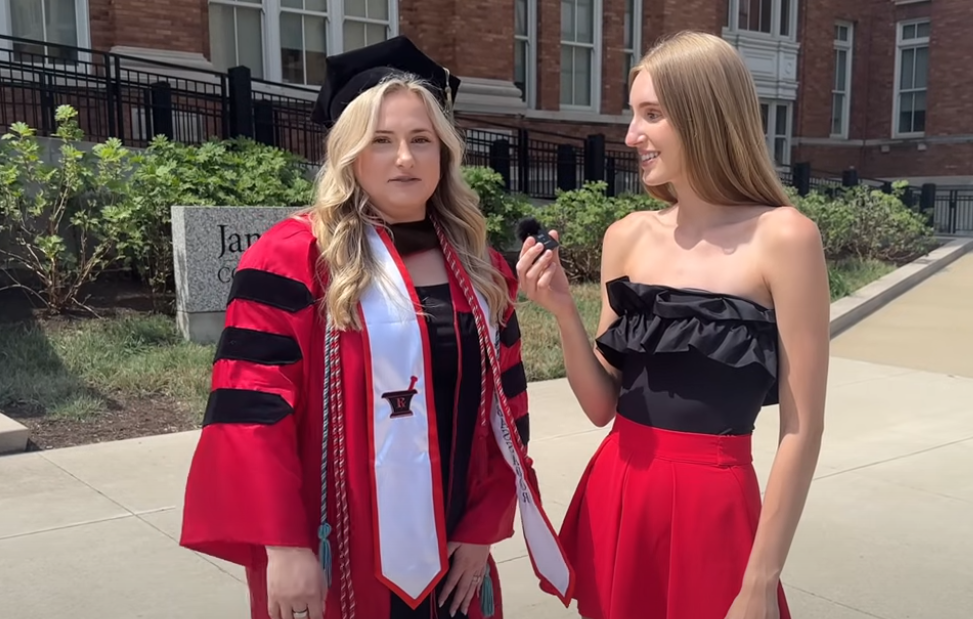Understanding university vocabulary is essential for any student planning to study in an English-speaking environment. Whether you’re attending a university in person or taking classes online, knowing the correct academic and campus-related terms will help you succeed in your studies and communicate more effectively. This guide will introduce you to key university vocabulary, grouped into different categories to make learning easier.

1. General Terms
Let’s begin with the basic vocabulary you will encounter from the moment you apply to a university:
- University / College – In the U.S., these words are often used interchangeably. In the UK, “university” is the more common term.
- Campus – The physical area where university buildings, dorms, libraries, and sports facilities are located.
- Term / Semester / Quarter – The academic year is divided into periods. In the U.S., it’s often split into two semesters (fall and spring). Some universities use quarters (four parts). The UK often uses terms.
- Undergraduate – A student pursuing a bachelor’s degree, typically lasting 3-4 years.
- Postgraduate / Graduate Student – A student who has already earned a bachelor’s degree and is studying for a master’s or PhD.
- Freshman / Sophomore / Junior / Senior – Terms used in the U.S. to describe students in their 1st, 2nd, 3rd, and 4th years of study.
2. Academic Programs and Courses
- Degree – A qualification awarded by a university, such as Bachelor of Arts (B.A.), Bachelor of Science (B.Sc.), Master of Arts (M.A.), or Doctor of Philosophy (Ph.D.).
- Major – The main subject a student chooses to focus on during their degree. Example: “I’m majoring in Psychology.”
- Minor – A secondary subject a student studies along with their major.
- Course / Class – A specific subject taught over a term or semester. Example: “I’m taking a course on Modern History.”
- Credits – Units that measure how much work a course requires. You need a certain number of credits to graduate.
- Elective – A course that is optional, not required for your major.
- Core Course – A required course that all students in a program must take.

3. Academic Staff and People
- Professor – A senior academic staff member who teaches and conducts research.
- Lecturer – A teacher at a university who may not hold a full professorship.
- Teaching Assistant (TA) – A graduate student who helps a professor with instruction, grading, and sometimes teaching.
- Advisor / Academic Advisor – A staff member who helps students choose courses and plan their academic paths.
- Dean – The head of a college or department within the university.
- Registrar – The office or person responsible for student records, course registration, and transcripts.
4. University Buildings and Facilities
- Lecture Hall – A large room where lectures are held.
- Classroom / Seminar Room – Smaller rooms for discussions, smaller classes, or group work.
- Library – A place where students can study, borrow books, or use computers.
- Laboratory / Lab – A room used for science or engineering experiments.
- Student Union / Student Center – A building that provides services and spaces for student activities and socializing.
- Dormitory / Residence Hall / Dorm – On-campus housing for students.
- Dining Hall / Cafeteria – A place where students can eat meals.
5. Teaching Methods and Activities
- Lecture – A formal presentation by a professor, often to a large group of students.
- Seminar – A smaller, more interactive class where students discuss topics in depth.
- Tutorial – A session where a tutor works closely with a small group or individual student.
- Lab Session – A hands-on session in a laboratory.
- Group Project – A task that students complete as a team.
- Essay / Paper – A written assignment discussing or analyzing a topic.
- Thesis / Dissertation – A long, formal piece of writing for a graduate degree.
- Presentation – When students explain or discuss a topic in front of the class.

6. Assessment and Grades
- Assignment – Any piece of work given by the instructor to be completed by the student.
- Midterm Exam – An exam held halfway through the semester.
- Final Exam – An exam given at the end of the semester.
- Quiz – A short test, often used to check understanding.
- Grade / Mark – The score a student receives for their performance.
- GPA (Grade Point Average) – A system in the U.S. for averaging grades, usually on a 4.0 scale.
- Pass / Fail – Terms that describe whether a student meets the minimum requirements to complete a course.
- Plagiarism – Copying someone else’s work without giving credit; considered a serious academic offense.
7. University Life and Services
- Orientation – An event or program at the beginning of the academic year to help new students adjust.
- Scholarship – Financial aid awarded to students based on merit or need.
- Tuition – The money you pay for your education.
- Financial Aid – Money or services provided to help pay for university.
- Transcript – An official record of a student’s academic performance.
- Internship – Work experience, usually related to a student’s field of study.
- Study Abroad – A program where students study in another country for a term or year.
8. Common Campus Expressions
- Pull an all-nighter – To stay up all night studying.
- Cram for an exam – To study intensely right before a test.
- Skip class – To not attend a scheduled class without permission.
- Office hours – Times when professors are available to meet with students.
- Drop a course – To remove a course from your schedule.
- Add a course – To register for a course after the term starts.
- On campus / Off campus – Refers to whether something is located within the university grounds or outside.

9. Tips for Learning University Vocabulary
If you’re learning English, understanding this vocabulary will help you not only survive but thrive in a university setting. Here are a few quick tips:
- Use Flashcards – Write the word on one side and the definition on the other. Practice regularly.
- Watch Campus Tours – Search for university tours on YouTube. They often use authentic vocabulary.
- Read Academic Articles or Student Blogs – You’ll see these terms used in real context.
- Practice with Conversations – Talk about your school experience with a friend or tutor using these words.
- Label Your Environment – If you’re living in a dorm, label your desk, books, or appliances in English to build vocabulary.
Conclusion
Mastering university vocabulary is essential for academic success and clear communication. From classroom terms and campus buildings to grading systems and student life, these words and phrases form the foundation of daily life at college or university. Whether you’re planning to study abroad or simply want to improve your academic English, understanding these terms will make your journey smoother and more enjoyable.
So next time someone asks, “What’s your major?” or “Are you living on campus?”—you’ll be ready to answer with confidence! 🎓📚


